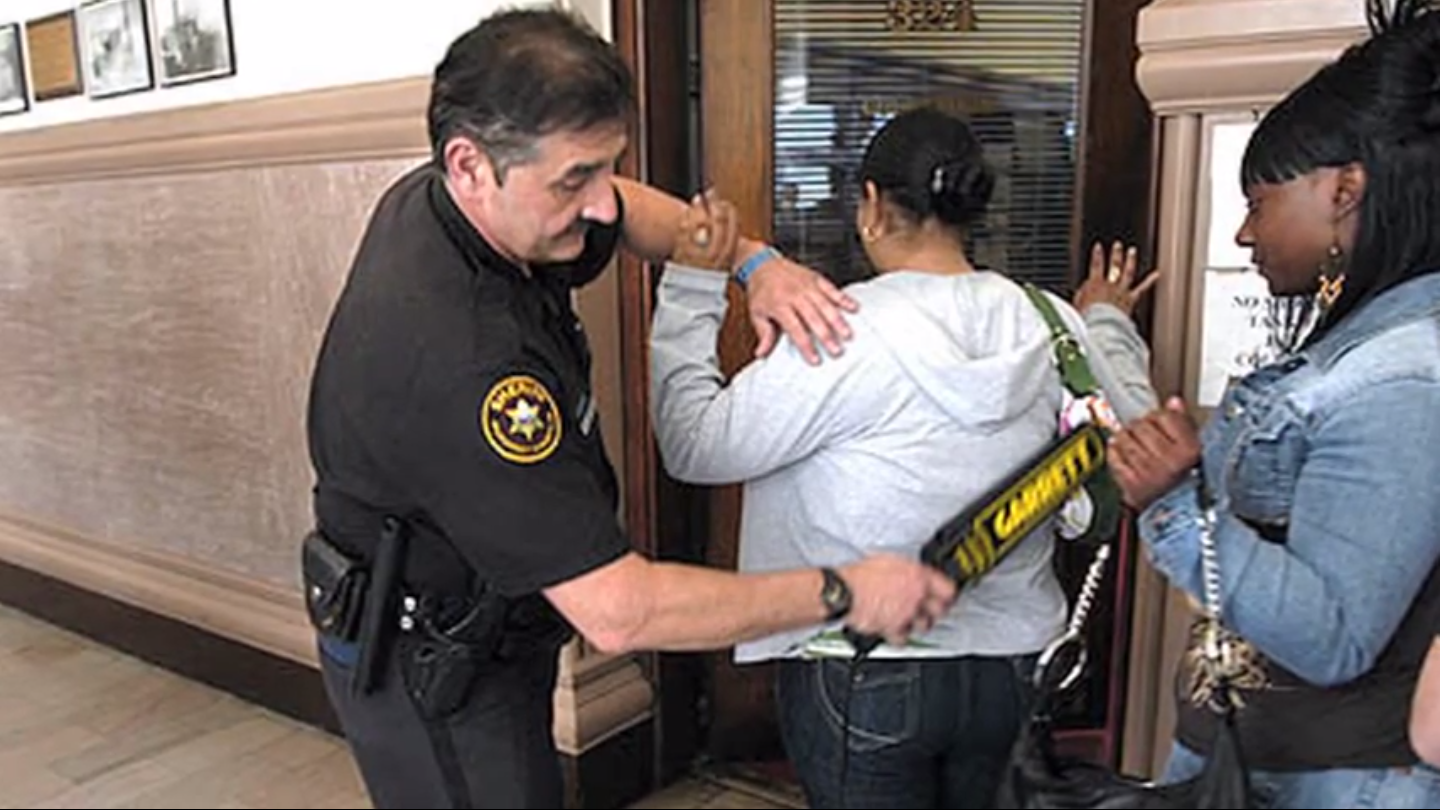The city has limited the involvement of police in its new school suspension policy, but a new video by the New York Civil Liberties Union compels one to wonder how in the world this could count as reform.
“I’ve had instances where we had police assigned to our building, who I believe overreacted to particular incidents,” said William Jusino, Principal of Progress High School. He cited an incident where an officer maced a student who was already handcuffed.
Under new guidelines being enforced by the Department of Education, cops will be required to turn over monthly reports and won’t be able to cuff kids under 12 unless other restraint tactics have failed, but it doesn’t do enough to eliminate what NYCLU Executive Director Donna Lieberman has called the “school-to-prison pipeline.” “We call it the ‘school-to-prison pipeline,'” says Lieberman, “because when you push kids out of school — at any point — they’re less likely to graduate, and they’re far more likely to end up in jail.”
Schools that have holding cells for “problem students,” for example, effectively turn schools into prisons. “What this does, is from Day 1, when you enter freshman year, it starts to condition you — that you are a criminal,” says Tiffany Joy Cotto, a community organizer at the Youth Ministry for Peace and Justice.
The NYCLU filed a class-action lawsuit against the NYPD in 2010 after police arrested kids and teens for infractions as minor as doodling on a desk. “The goal of the lawsuit is to get the NYPD to create new policies, new training programs and supervision practices for the school safety division to make sure that no more kids suffer bad arrests or unlawful uses of force,” says Alexis Karteron, a senior staff attorney with the NYCLU.
(Image: NYCLU)


